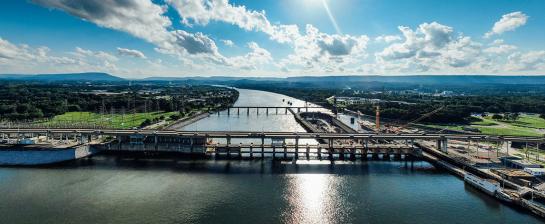One of the primary objectives of the Nicholas Institute is the collection of robust and accurate data, and the scientific analysis of that data. The Institute has several projects that focus on such work, including the Internet of Water, an endeavor to share and integrate water data that are used to inform decision-making and improve outcomes for sustainability and the Reservoir series, dedicated to discerning how well U.S. Army Corps of Engineer reservoirs follow guide curves.
Additionally, the Rhodes Information Initiative at Duke (Rhodes iiD), in partnership with Nicholas Institute for Energy, Environment & Sustainability, offers Climate+, a vertical within Rhodes iiD’s Data+ program, a full-time, ten-week summer research experience for Duke students of all class years and majors. Climate+ is aligned with Duke’s commitment to advancing interdisciplinary understanding of climate change’s causes and societal impacts and to identifying sustainable solutions, including climate change mitigation and adaptation strategies. Climate+ teams work on diverse topics, including electricity consumption, wetland carbon emissions, climate change’s impacts on river and ocean ecosystems, and the use of remote sensing data to inform climate strategies.














